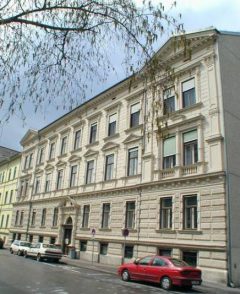CFP: Forms of Migration: An International Conference on Transnational Literature & Innovative Aesthetics
May 2-4, 2019: University of Graz (Graz, Austria)

The Department of American Studies and the Centre for Intermediality Studies at the University of Graz (Graz, Austria), in conjunction with the Austrian Science Fund (FWF), announces a call for papers for an interdisciplinary, transnational conference on contemporary im/migrant literature and innovative aesthetics. Many important texts of the 21st century reflect complex processes of memory, migration, and identity formation from the margins of migrant communities globally. Exciting opportunities exist to integrate im/migrant literature from an interdisciplinary, transnational approach. This conference asks: what narratives are shaping our understanding of the dynamics and identities involved in and around im/migration processes and, more importantly, what forms do these narratives take? Through face-to-face interaction and hands-on work, this conference showcases how innovative literature is not simply abstract expressions of remote concepts, but is directly informed by and informing the material realities that shape human existence. Words have power.
While data driven social science research can inform important public policy debates and affect policy outcomes, such conversations and policy decisions should also consider the cultural values and criticisms expressed in literature and the arts more generally. This conference argues that thoughtful cultural and literary study can help to give voice to the voiceless and can create opportunities to unite, through readership and through a wider circulation of texts, communities which might not otherwise come into contact with each other. This conference’s emphasis on form argues (drawing on scholars such as Jameson, Nussbaum, Sontag, Spivak) that it is also because of form that the arts matter. It is the very materiality of texts and formal qualities of certain stories that impact readers and shape public knowledge. To read about migration and its effects not only through news media or online sources, but also through innovative storytelling creates opportunities for greater empathy, or at least understanding, with diverse audiences of readers. How literature’s formal attributes can bring us, as readers, into powerful experiences that we do not yet know how to name has been theorized variously by many scholars in recent times—as “empathy” by Nussbaum or “affect” by Jameson, for example. Yet by calling attention to what is not yet incorporated into the status quo, such a relationship between a text and its readers prefigures of the possibility of radical historical change, pointing towards the new and the unknown, beyond current forms of social life.
We seek proposals for individual presentations or panels that engage innovative/experimental/avant-garde literature that is transnationally engaged with im/migrant communities, identities, histories, experiences. Although the stated focus of this conference involves im/migrant literatures, we would welcome presentations on transnationalism and aesthetics more broadly conceived.
While work under discussion does not need to be written in English, presentations and discussions will be in English. Perspectives that engage gender studies, queer studies, ethnic studies, critical race theories, transnationalism, postcolonial studies, and disability studies are particularly appreciated. We are especially interested in presentations/panels that propose performance/workshop/discussion/digital interaction/audio-visual-kinesthetic opportunities for audience engagement as part of the presentation. However, traditional paper formats are also welcome.
This conference will also offer include an evening of creative writing readings by select keynote speakers, who are also internationally recognized, practicing writers. All attendees will be invited to this event, which will include a Q&A with the authors. This event will be open to the public.
Possible topics include (but are not limited to):
- transnationalism and aesthetics
- comparative transnationalisms /comparative migration studies and form
- the American ethnic avant-garde
- the experimental novel (20th & 21st c)
- experimental poetry in the late 20th/21st c
- historical roots of current avant-garde movements, expressions
- experimental literature and the question of identity
- language as social artifact in the context of im/migrant communities
- postmodern, experimental, innovative, alternative, avant-garde? questions on terminology and its usefulness for 21st century literature
- cross-genre texts
- narrative forms (narratology)
- literary innovation/experimentation and social movements
- gender & literary innovation
- queer forms: sexuality and experimental texts
- experimental literature as it engages the material realities of race, im/migration processes, postcoloniality, decoloniality, nation, community, geography, etc.
- presses and publication: where does experimental literature come from? who is publishing these texts and why? role of self-publishing?
- experimental form and social media
- digital humanities and its relationship to boundary-defying literature
Please send individual presentation (200 words, suitable for 15-20 minutes) or full panel proposals (incl. panel abstract) along with a short bio statement to Dr. Jennifer A. Reimer (jennifer.reimer@uni-graz.at) by 26 October 2018.
Questions? Please contact Jennifer Reimer (above) or Prof. Silvia Schultermandl (silvia.schultermandl@uni-graz.at).